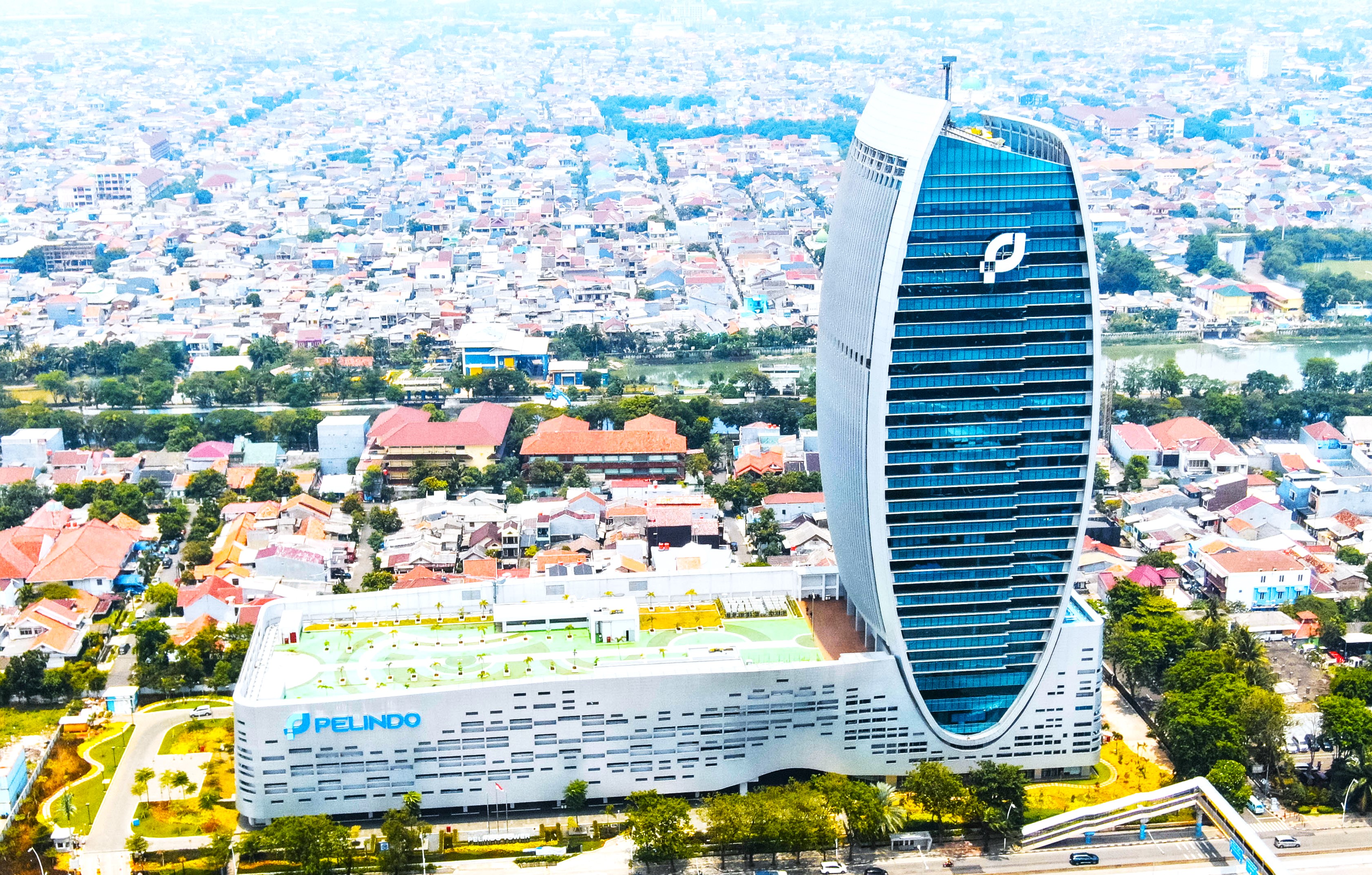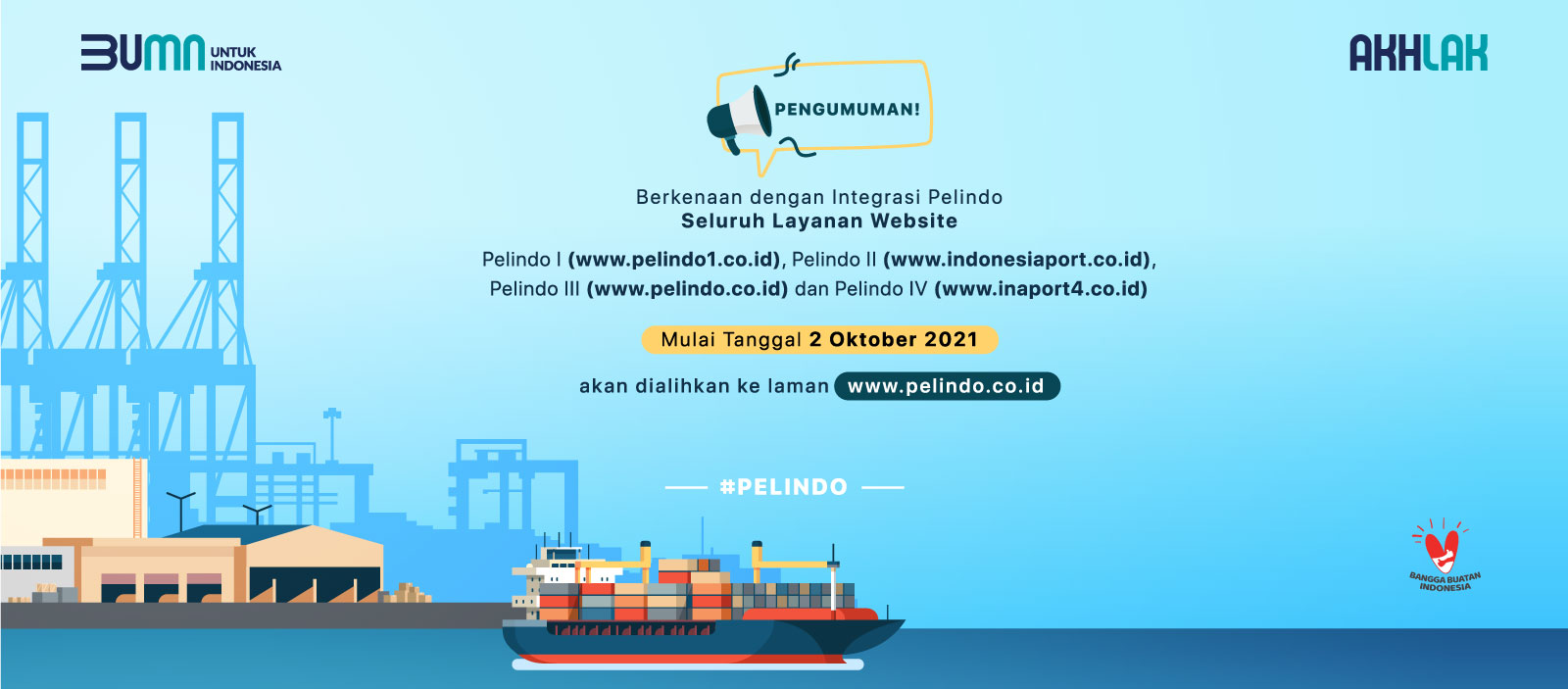
Pelindo's performance is more solid, 2023 containers will reach 17.7 million teus
Jakarta, February 7, 2024 - Amid dynamic economic conditions, Pelindo managed to serve container flows of 17.7 million TEUs throughout 2023, growing 3% compared to 2022 (year on year/yoy). Meanwhile, the flow of goods was recorded at 170 million tons, an increase of 6% from the previous year.
"All of Pelindo's operational performance is growing in 2023. This achievement continues the positive trend after the merger in October 2021," explained Arif.
In 2023, the flow of ships served by Pelindo reached 1.28 billion Gross Tonnage (GT), an increase of 7% from last year. Meanwhile, the passenger flow increased significantly by 20% (yoy) or reached 18.1 million people.
Centralized management is one of the keys to improving operational performance. Arif explained that this makes Pelindo have better strategic control, making it easier to transform end-to-end operating services such as creating a standardized port operational service system that previously varied between ports.
Pelindo has also innovated by launching various applications to facilitate port activities, such as TOS (Terminal Operating System) to support container services, PTOS-M (Pelindo Terminal Operating System Multipurpose) to strengthen non-packaging services, and Phinnisi for ship service operating systems.
"For Pelindo, the success of operational performance cannot be separated from the standardization of services and effective management of all Pelindo people. In addition, Pelindo has also taken strategic steps in 2023 by utilizing the latest technology such as TOS, PTOS-M and Phinnisi to improve operational efficiency." Arif said.
Post-merger, the speed of loading and unloading services at a number of ports has increased. For example, at the Belawan Container Terminal (TPK), the number of unloads has more than doubled from 20 boxes to 60 boxes per ship per hour. In addition, at Ambon Container Terminal, the loading and unloading speed has almost tripled, from 12 boxes to 35 boxes under optimum conditions.
According to Steven, Director of Tanto Intim Line, the speed of service ultimately affects the costs that shipping companies and cargo owners have to bear. For example, fuel costs are much reduced as docking time is reduced from 2-3 days to just one day. "Previously, the Surabaya-Makassar-Sorong trip could take up to 10 days, now it can take a week. This can reduce costs considerably. With digitalization, the payment process is also more transparent," he said.
Director of PT Serakoy Raya Ernest Montolalu as a business actor in Transportation Management Services (JPT) or forwarding said that document processing services are carried out online and the process of picking up goods is easier, faster and well-systemized. This is because there is an IBS (Integrated Billing System) system that displays information to service users about ship arrival schedules, even information on the position of goods.
This is in line with the National Strategy for Corruption Eradication (Stranas PK) program to encourage the prevention of corruption in the port environment.
"We see that Pelindo with its Digitalization program has produced results. In simple terms, port digitization has a positive impact on the loading and unloading process which is currently faster and more cost efficient," said Pahala Nainggolan, KPK Deputy for Prevention and Monitoring.
In 2024, Pelindo will continue the transformation program within the company, while striving to increase its role, not only as a maritime gateway but also as a traffic stimulator, which encourages the growth of goods traffic through the integration of industrial areas with ports.
"We continue to collaborate with various stakeholders, both the government and investors in order to build an integrated industrial area with the port which will ultimately encourage efficiency in terms of logistics costs," concluded Arif.

